
A runner who was given “very low” odds of survival after suffering a pulmonary embolism during a race and collapsing soon afterwards has just completed the London Marathon to raise money for the hospital that saved her life.
Beth Mullan Feroze, 34, a lawyer from Highams Park, north-east London, crossed the finish line on Sunday, three years after spending five days in a coma at St Bartholomew’s Hospital.
Seemingly fit and healthy, Beth began to struggle with breathlessness during a race in 2019 and later collapsed unconscious at home.
Her husband, Pete, 34, who works in marketing, called an ambulance and she was rushed to hospital, where she was placed in a coma to protect her organs from shutting down.
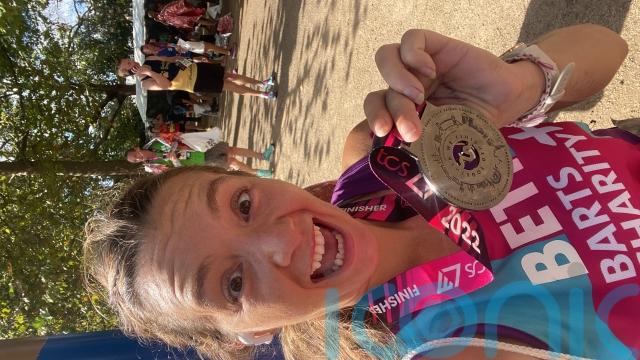
Waking up in intensive care five days later, Beth was shocked to discover she had a prothrombin gene mutation, also known as a Factor II mutation, which increases a person’s predisposition to dangerous blood clots – such as the pulmonary embolism, a blocked blood vessel in the lungs, which Beth had suffered.
Beth has now made a full recovery and even has a dog called Bart in honour of the hospital which saved her, but her nightmare began in October 2019 while she was training for a marathon.
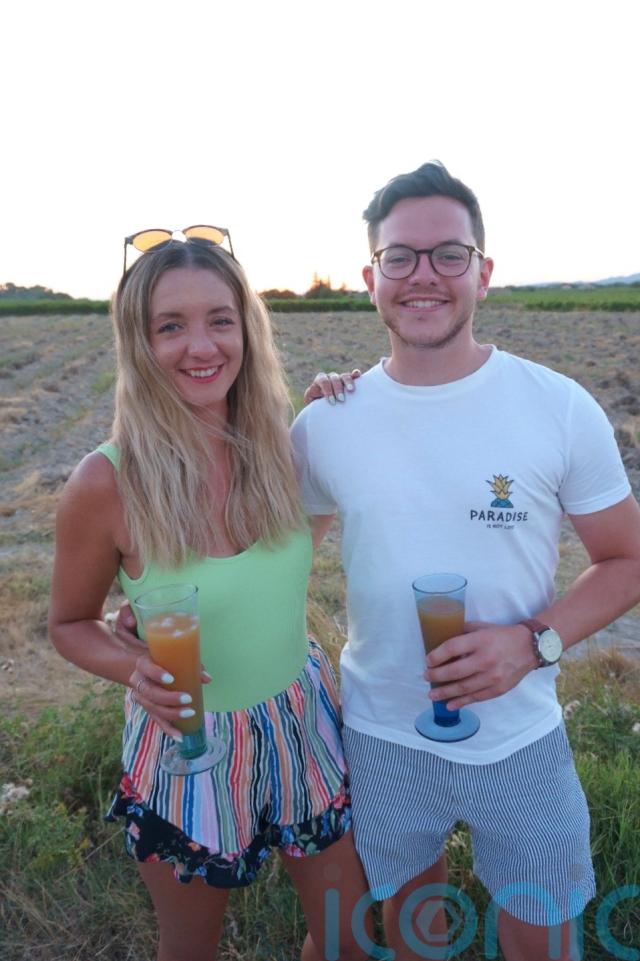
“This (was going to) be the third marathon I’d done, which was due to take place in November 2019,” she said
“I did a half-marathon in Victoria Park in London as part of my training but I’d not felt great leading up to it.
“My right calf was really tight but I did my warm-up run and I was struggling to catch my breath.”
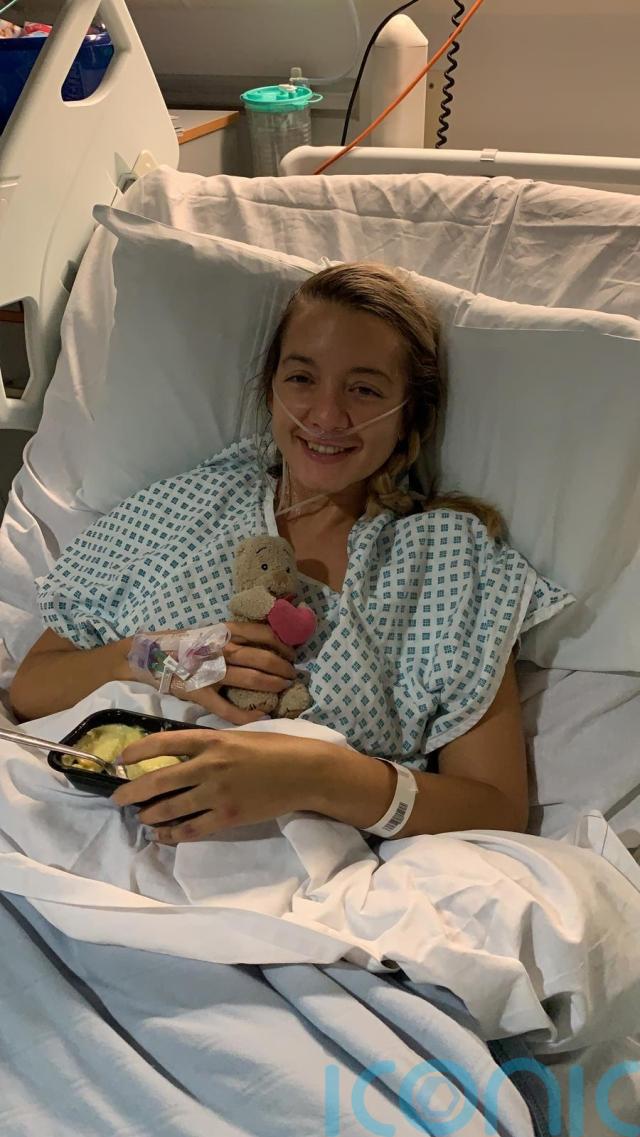
She added: “Despite that, I decided to go ahead with the race.”
Beth got two kilometres into her half-marathon run before staff pulled her to one side.
She said: “I must have looked visibly distressed because they took me out of the race and wanted me to get checked (by medical staff at the scene).
“They seemed happy enough and told me to go home and rest.”

Having made a GP appointment, Beth’s doctor thought her breathlessness could be a chest infection and she was prescribed antibiotics.
She said: “I was getting worse instead of better and my leg pain was getting so bad that I had to start using crutches but I didn’t make the connection between my leg and breathing issues.”
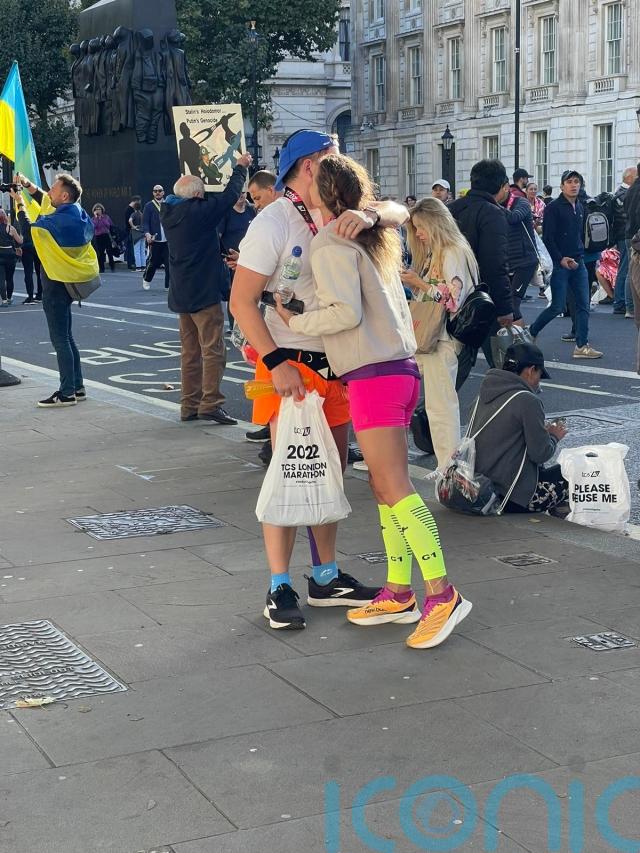
Then, on October 22 2019, Beth lost consciousness while at home on her own.
She said: “I don’t really remember much but my husband couldn’t get hold of me and he was very worried, so he called an ambulance.
“By the time he got home, the paramedics were helping me get back into bed, but my husband insisted that something was seriously wrong.”
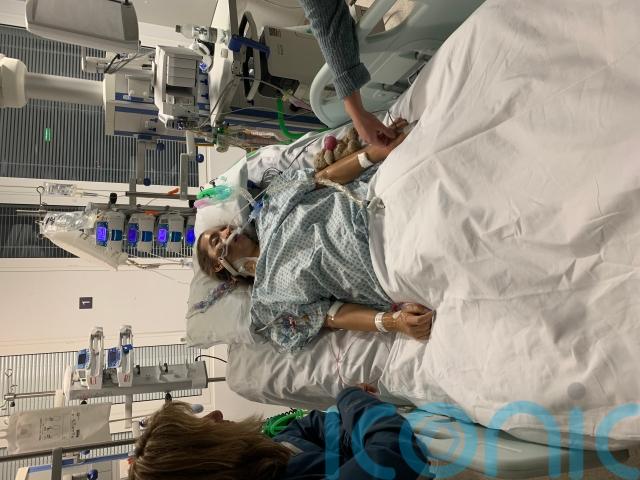
She added: “I remember vaguely that they took me into the ambulance and checked me over. My oxygen levels were at 40 and that’s when they realised I was in danger.”
Beth was rushed to Whipps Cross Hospital before being transferred to the Royal London Hospital for a thrombolysis procedure and was placed in a medically induced coma and transferred to St Bartholomew’s Hospital.
“My parents were in France and they were told to come home because they didn’t know if I was going to make it through the night. My chances of survival were considered to be very low at that point,” she said.

Beth added: “They placed me in the coma to improve my chances because my organs were showing signs of shutting down.”
It was discovered that Beth had suffered a pulmonary embolism.
With blood clots found in both her legs and lungs, it was five days before she woke up in intensive care.
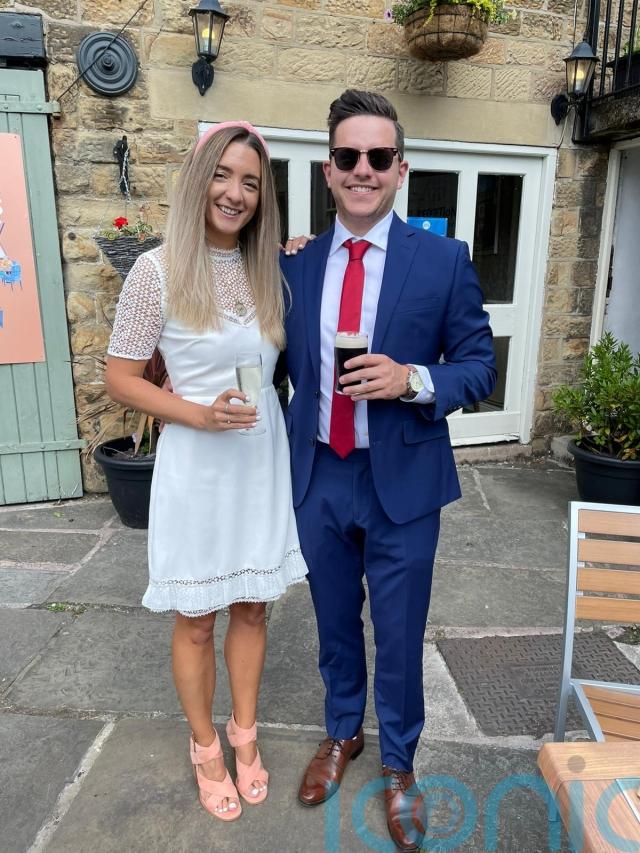
She said: “I was very confused and even thought I was on a psychiatric ward at first.
“I was given the information on what had happened bit by bit because I wasn’t up to focusing on conversations.”
It was only at a follow-up appointment, after being discharged on her tenth day in hospital, that Beth learned the extent of what happened.
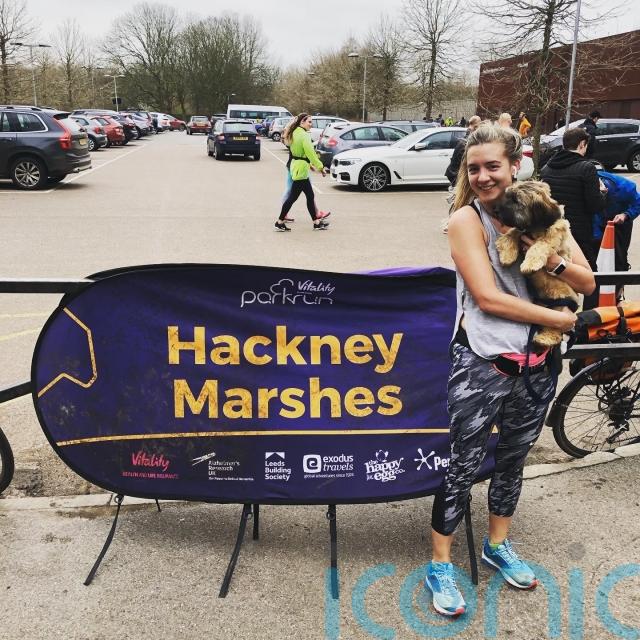
She said: “The whole ordeal was the scariest thing I’ve ever experienced in my life.
“I’d never heard of a pulmonary embolism before and, while I had heard of blood clots, I never thought someone like me who is young and healthy would suffer from them.
“After further testing, doctors found out that I have a gene mutation which means I’m more likely to have blood clots.
“It’s just lucky that I’ve always been really healthy and never smoked, because this could have been so much worse.”

Beth got a Maltese-cross puppy on the day she left hospital and she and her husband moved back in with her parents in Derbyshire to aid her recovery.
She said: “I needed round-the-clock care while I was recovering and we couldn’t afford for Pete to take any more time off work.
“The day I got out of hospital, I got a puppy, which is ridiculous, but the pup has been by my side throughout my recovery.”
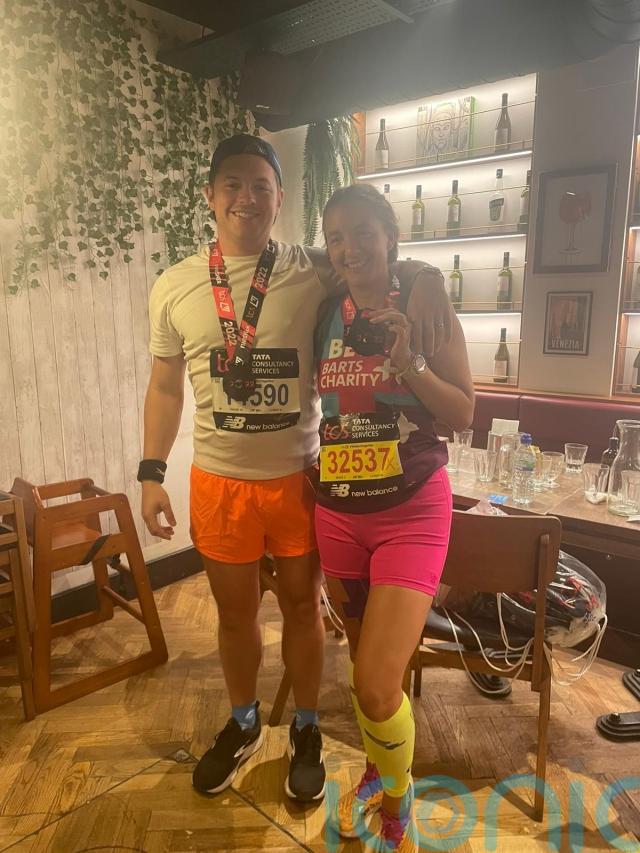
Beth named her new dog Bart after St Bartholomew’s – the hospital that saved her life.
She said: “It’s taken a long time to build up my strength and start to be able to exercise again.
“Bart has been by my side through a lot of it, and while running a 5k he even jumped through the gate and ran the last 15 feet with me.”
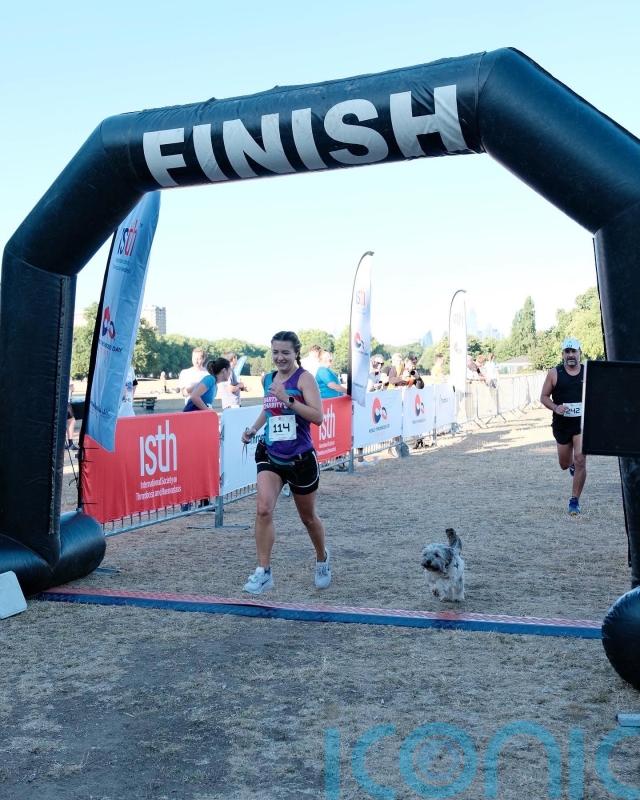
Beth ran the 26.2 miles in four hours last Sunday to raise money for the thrombosis unit at St Bart’s, with her family and friends cheering her from the sidelines.
She said: “It’s a cause very close to me and has been a way for me to not only focus on getting my fitness levels back to where they were but also give back to the place that saved my life.”
Subscribe or register today to discover more from DonegalLive.ie
Buy the e-paper of the Donegal Democrat, Donegal People's Press, Donegal Post and Inish Times here for instant access to Donegal's premier news titles.
Keep up with the latest news from Donegal with our daily newsletter featuring the most important stories of the day delivered to your inbox every evening at 5pm.